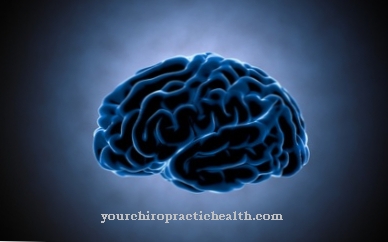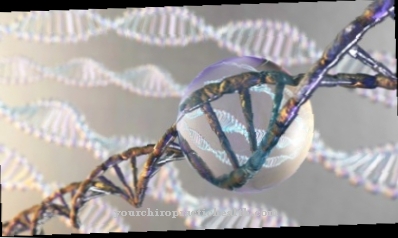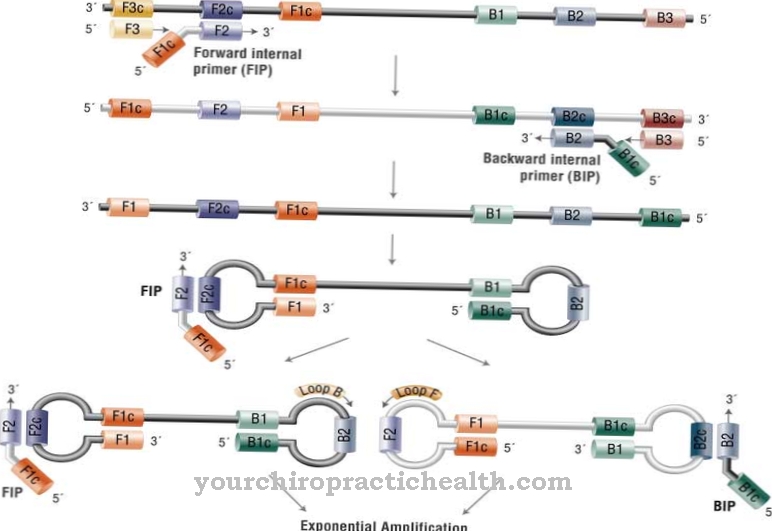curiosity is characterized by a desire for something new and is considered to be a basic human characteristic. Motivation and drive depend heavily on curiosity, as the human being receives feedback from the body's own reward system when his curiosity is satisfied. In the case of dementia, for example, reduced curiosity can lead to a symptomatic loss of motivation.
What is the curiosity?

Curiosity is a stimulus-like desire to discover new things. In particular, curiosity is often equated with the desire to discover what has been hidden so far. The Greek philosopher Plato described curiosity as the beginning of everything. People like Galileo judged the property to be the most powerful problem-solving engine, and Einstein attributed his talent for discovery to curiosity.
Curiosity has played one of the most decisive roles in the development of the human species. Accordingly, curiosity constitutes a basic human trait and is believed to be one of the most characteristic features of human personality.
Neurology has long known that the frontal lobe of the brain plays a role in character traits. As a character trait, curiosity should also be found in the frontal lobe. However, according to recent studies, scientists no longer assume that curiosity has a permanent place in the brain. Instead, the medical-neurological definition of curiosity now refers to a whole network of the kind that defines the human brain.
Function & task
As the University of Bonn found out, curious people have a better networked brain. Individual connections in the brain of the study participants correlated significantly with the degree of their curiosity and their curiosity behavior.
In the study, curiosity about the connection between the hippocampus and the striatum was particularly decisive. The striatum houses the body's own reward system and thus corresponds to the part of the brain that encourages people to act, provides motivations and arouses interest in action. The hippocampus, on the other hand, mainly houses memory functions and also releases messenger substances that affect the reward system. The stronger the connection between the striatum and the hippocampus, the more likely people will want to try new things.
The basic connection between the two areas is presumably innate, but only fully matures in the first months or years of life. In this context, the impulses that the toddler receives from his environment are likely to be decisive. Such impulses arouse attention and could be responsible for the fact that the connection between the striatum and hippocampus is largely strengthened. This could explain the different degrees of curiosity that people basically have.
Curiosity has a positive effect on people in many ways. The more curious a person, the more open they are to new things. He learns more easily, is often happier and finds it easy to solve problems.
Since messenger substances such as dopamine generate a strong feeling of happiness via the reward system of the striatum when curiosity is satisfied, curiosity is one of the most important drives and motivations. Curiosity, according to the University of California, actually makes you high in some ways. Thus, a person whose curiosity has once been satisfied can even become somewhat addicted to the feeling of satisfied curiosity. The satisfaction of curiosity ultimately makes you more and more curious.
You can find your medication here
➔ Medicines for relaxation and nerve strengtheningIllnesses & ailments
People with pathologically reduced curiosity mainly suffer from listlessness. They feel less motivated to take action or live their life. Different diseases can minimize curiosity. Physical causes are, for example, dementia. As soon as the connections between the striatum and hippocampus break down in the context of dementia, the patient's curiosity decreases rapidly and a loss of motivation occurs.
Damage to this brain network can also occur in the context of other diseases. In this context, strokes should be mentioned as well as cerebral haemorrhage due to trauma, bacterial inflammation, tumors, autoimmunological inflammation, congenital brain malformations or cerebral hypoxia.
In addition to these causes, reduced curiosity with symptomatic loss of motivation can occur in the context of depression, schizophrenia diseases or stupor. Stupor is probably the most radical example: it is a state of rigidity that patients experience when fully conscious. The phenomenon often follows on from severe depression or schizophrenia.
Since some medications and drugs act on the reward system in the striatum, a person's curiosity and motivation can also decrease when taking medication or having addictions. Hormones also have an influence on different processes within the brain. Hormonal disorders caused by diseases of the thyroid gland or other glandular organs can thus also affect a person's curiosity.
Pathological changes in curiosity and motivation must always be distinguished from physiologically low curiosity. As noted above, curiosity is likely formed through impulses during early childhood. This means that the level differs from person to person with no pathological value depending on the attention impulses experienced.
In contrast, those who are exposed to deprivation in the sense of social impoverishment in early childhood experience a pathological reduction in curiosity. In situations of deprivation, adolescents do not receive sufficient attention and thus not enough impulses that would allow a physiological brain development.













.jpg)

.jpg)
.jpg)











.jpg)